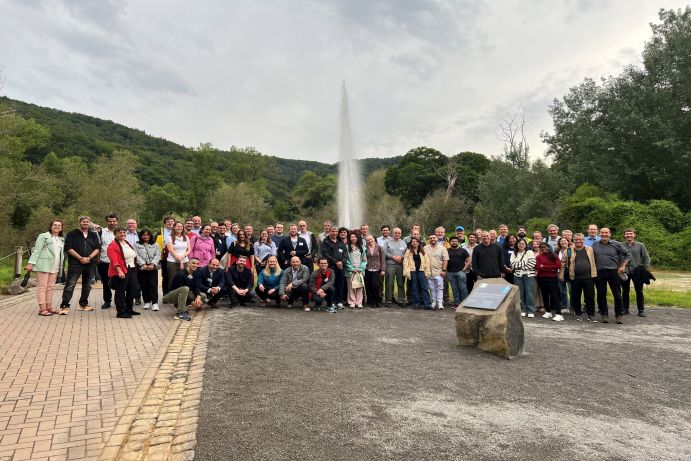Working Together to Find Solutions to Water Scarcity: 50 Years of German-Israeli Cooperation in Water Technology
Climate change presents new challenges for water management in Germany. In this context, water reuse is becoming increasingly important as a means of coping with local and regional water shortages. Israel's long-standing experience in this field offers Germany valuable lessons. Representatives of the German Federal Ministry of Education and Research (BMBF) and the Israeli Ministry of Science and Technology (MOST) stressed the importance of cooperation at an event on their bilateral program in water technology research.

Some 70 participants from Israel and Germany gathered in Koblenz in mid-June to present the results of twelve ongoing cooperation projects. This year's status seminar marked the 50th anniversary of the bilateral Cooperation in Water Technology Research, which has funded more than 162 projects involving participants from both countries since 1974.
A focus of the current funding round is water reuse in agriculture. Israel has been successfully using treated wastewater for irrigation for many years to conserve freshwater resources, with a reuse rate of nearly 85 percent. In Germany, too, more frequent dry summers and additional low rainfall in winter are already having a negative impact on the water supply in some regions. The use of treated wastewater for agricultural and urban irrigation, as well as for the production of industrial goods, therefore also offers promising potential in this country. The PEC-NF project, for example, achieves higher efficiencies through customized nanofiltration membranes. It brings together researchers from the University of Duisburg-Essen and the Technion in Haifa, as well as participants from the Erkrath-based membrane specialist CUT Membrane Technology.
The conference proceedings of the status seminar with all project results can be downloaded here.
At the end of the seminar, the participants emphasized the importance of the decades-long water technology cooperation between the BMBF and MOST. Both would like to see this continued. The latest call for proposals, which closed on March 13, again received a large number of project applications on the topics of "Biotechnology for Water Treatment" and "Water Reuse in Agriculture". These are currently being evaluated. Selected results of the collaboration are also presented in the BMBF's Atlas on Water Innovations.
Source: PTKA



